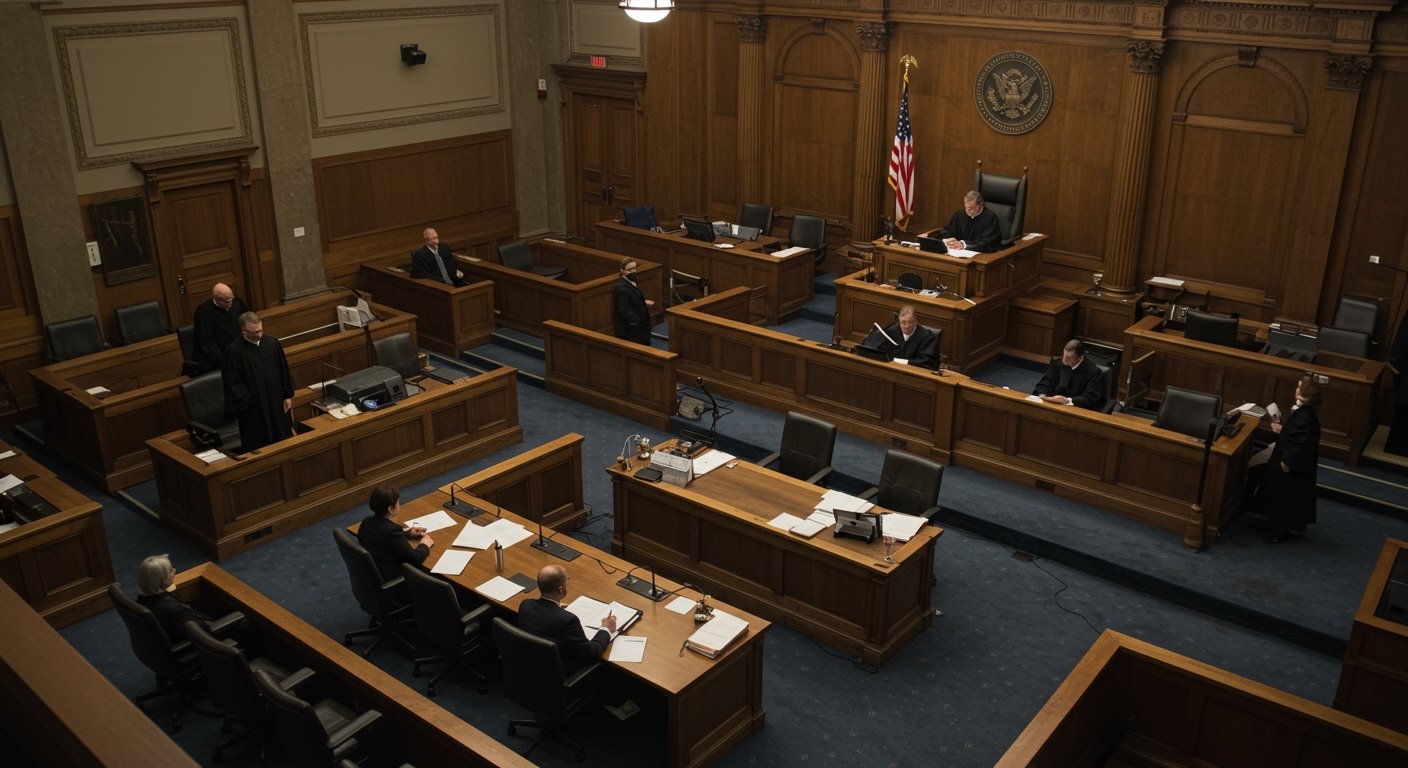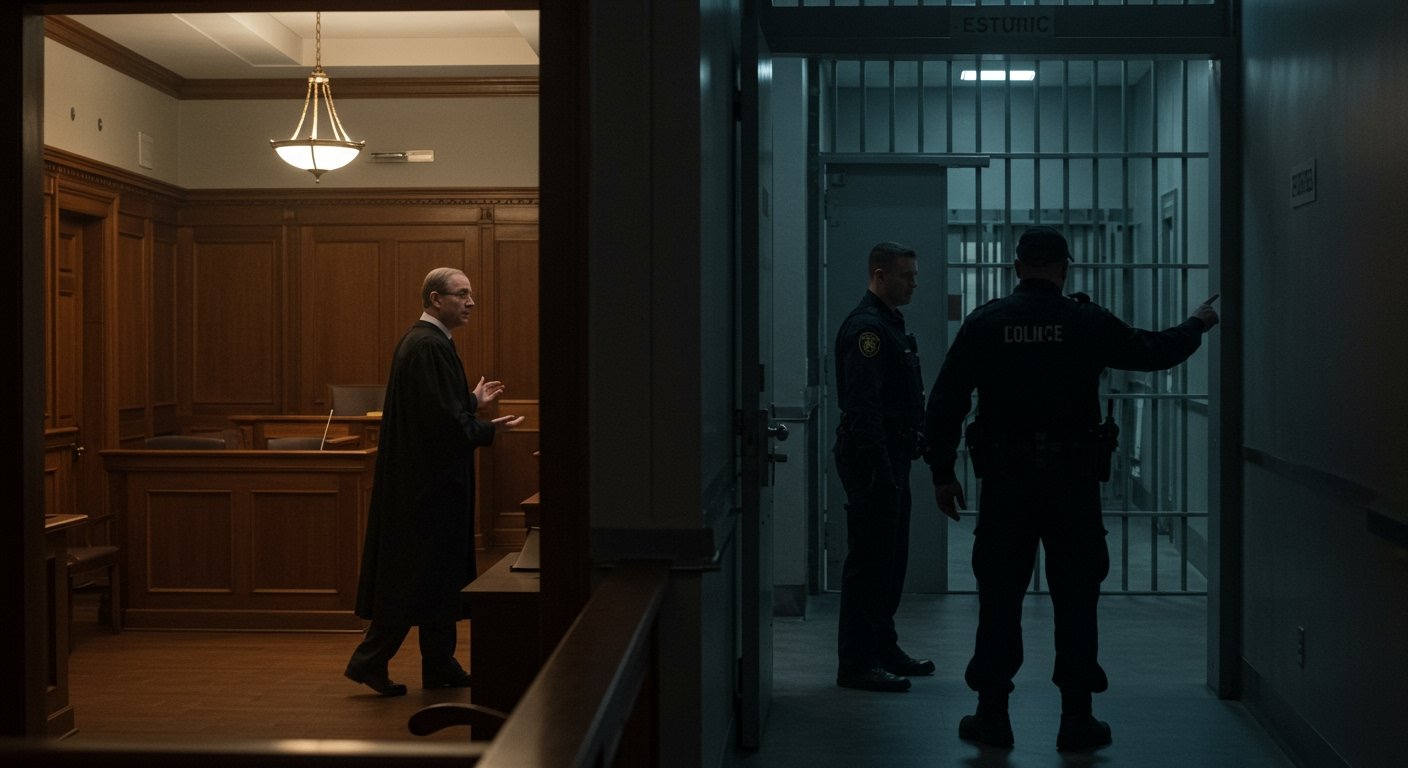Two individuals alleged to be prominent members of the transnational criminal organization known as Barrio Azteca, including a figure identified as a gang leader, were extradited from Mexico to the United States on Monday, February 24, 2025. This significant development marks a crucial step forward in the protracted legal proceedings related to the brutal murders committed at the U.S. Consulate in Juarez, Mexico, in 2010. The extradited suspects face serious charges in the United States directly linked to the deadly attack that targeted individuals connected to the consulate.
The extradition, a culmination of extensive cooperation between U.S. and Mexican authorities, underscores the ongoing commitment by both nations to dismantle violent criminal networks and bring those responsible for acts of terror and violence against U.S. personnel and facilities to justice, regardless of the passage of time. The transfer occurred on the specified date, advancing a case that has remained a somber point of reference in the history of U.S.-Mexico security relations.
Background of the 2010 Juarez Consulate Attack
The incident in question occurred on March 13, 2010, in Ciudad Juarez, a bustling border city in Chihuahua, Mexico, directly across from El Paso, Texas. The attack involved gunmen ambushing vehicles carrying families connected to the U.S. Consulate. Tragically, the assailants opened fire, resulting in multiple fatalities. Among the victims were a U.S. Consulate employee, her husband, and the husband of another U.S. Consulate employee, along with the couple’s young children. The violence sent shockwaves through the diplomatic community and highlighted the extreme dangers posed by powerful criminal organizations operating along the border during a peak period of cartel conflict.
The murders were quickly attributed to elements of the Barrio Azteca organization, a gang with deep roots in El Paso and Juarez, known for its involvement in drug trafficking, extortion, kidnapping, and contract killings. The 2010 attack on the consulate families was widely seen as a direct challenge to governmental authority and an act of retaliation or intimidation by the criminal group.
The Barrio Azteca Organization
Barrio Azteca is a powerful and violent prison gang and transnational criminal enterprise that originated in the Texas prison system but expanded its operations significantly into Mexico, particularly in and around Ciudad Juarez. The organization maintains strong ties on both sides of the U.S.-Mexico border, leveraging this connectivity for illicit activities including smuggling narcotics, weapons, and people. At its height, Barrio Azteca became deeply entwined with larger Mexican drug cartels, often acting as enforcers and hitmen in the brutal conflicts for control of lucrative trafficking routes.
The gang’s alleged involvement in the 2010 consulate murders cemented its reputation for extreme violence and its willingness to target individuals and symbols associated with law enforcement and government, including foreign officials and their families. U.S. authorities have long sought to prosecute Barrio Azteca members for a wide range of federal crimes, including Racketeer Influenced and Corrupt Organizations (RICO) Act violations, murder, and drug conspiracy.
The Extradition Process and Charges
The extradition of the two alleged Barrio Azteca members, which took place on Monday, February 24, 2025, involved complex legal and diplomatic processes between Mexico and the United States. Extradition is a formal process where one sovereign state surrenders an individual to another state for criminal prosecution or punishment. These processes often require the fulfillment of specific treaty obligations and legal requirements in both countries.
Upon their arrival in the United States, the extradited individuals are expected to face charges in federal court related to their alleged roles in the 2010 murders at the U.S. Consulate in Juarez. While specific indictment details were not immediately available, charges in such cases typically include conspiracy to murder, murder, and potentially other related offenses under U.S. law that permits prosecution for crimes committed abroad that affect U.S. nationals or interests. The fact that one of the extraditees is described as a gang leader suggests that prosecutors may seek to hold him accountable not only for direct involvement but also potentially for ordering or orchestrating the attack.
Implications for Transnational Crime Efforts
The successful extradition of these alleged Barrio Azteca members signifies a notable achievement in the binational effort to combat organized crime. It sends a strong message that perpetrators of violence, particularly those targeting individuals connected to diplomatic missions, cannot evade justice by crossing borders. Such extraditions are critical tools in disrupting the operations of transnational criminal organizations like Barrio Azteca, which exploit the border region.
This development is seen by law enforcement officials as a testament to the enduring partnership between the U.S. and Mexico in addressing shared security challenges. It highlights the commitment to ensuring accountability for past atrocities and underscores the potential for continued cooperation in apprehending and prosecuting individuals involved in organized crime that affects citizens and interests in both nations.
Moving Forward
The extradition on Monday, February 24, 2025, paves the way for the U.S. legal system to pursue justice for the victims of the 2010 Juarez Consulate murders. The suspects will now be subject to federal court proceedings in the United States. The case is expected to shed further light on the intricate workings of Barrio Azteca and its role in one of the most notorious attacks on U.S. personnel in Mexico. The long-awaited transfer of these individuals from Mexico to the U.S. represents a significant step towards potentially closing a painful chapter related to the violence that marked the U.S.-Mexico border region over a decade ago.












